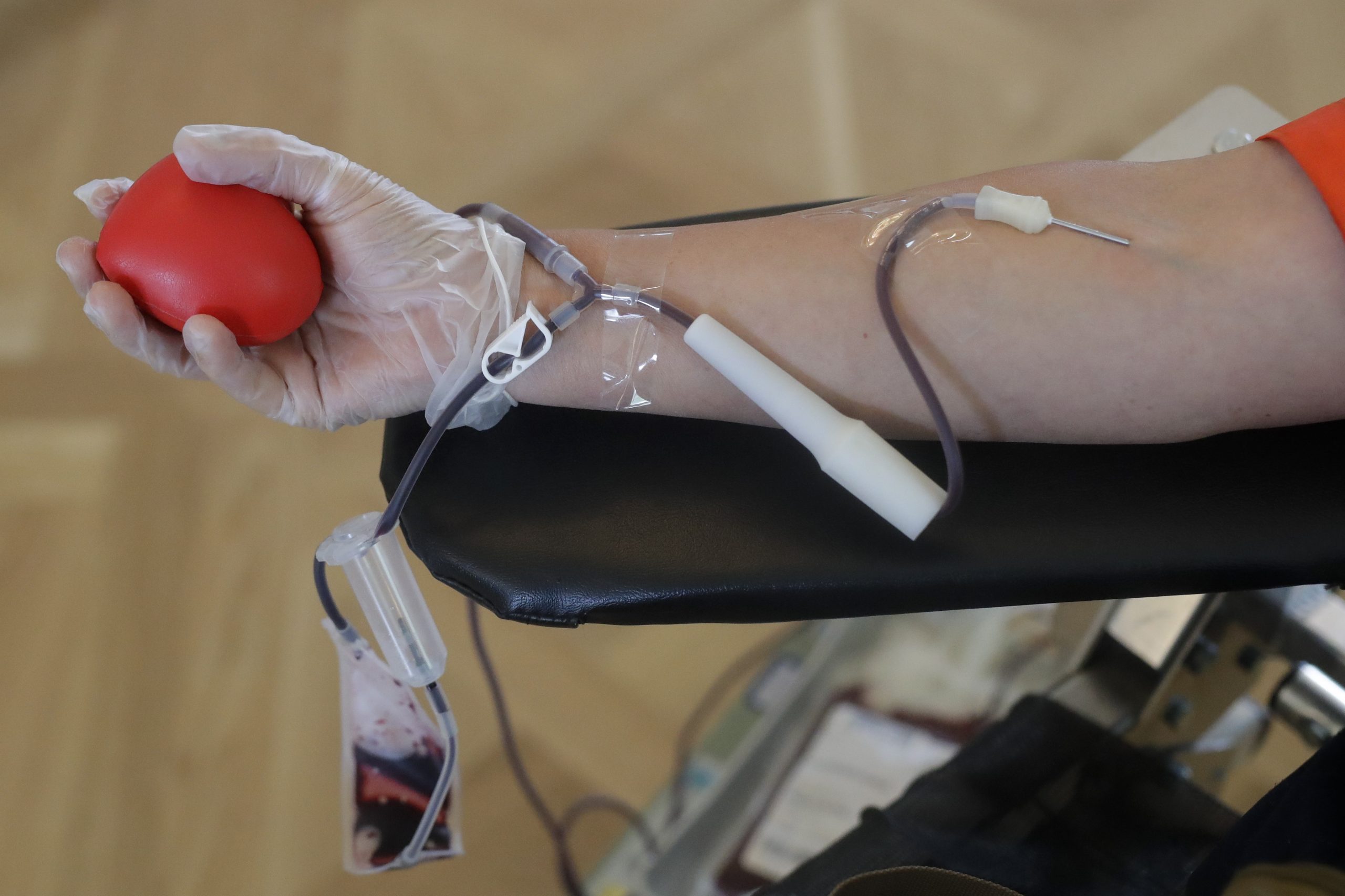
During the summer, blood donation centers typically see a lull in donations, but this year the lull in combination with an increased need for blood could make for a disastrous situation.
“Here in the Colorado region, we need around 450 units every single day,” said Brooke Way, communications manager for Vitalant, a nonprofit blood donation center. A unit is 525 mL of blood, or about one pint. “We try to keep a four day supply of all types on our hospital shelves at all times, right now we are seeing less than half of that.”
Vitalant runs blood donations at offices across the country, but in June hundreds of those clinics were canceled due to the pandemic. Many companies that used to have offices full of people — who would show up for a blood drive — are now empty or out of business, Way said.
Until July 6, donors at Vitalant blood centers will receive a free T-shirt for donating. Appointments and masks are required to donate. Appointments can be made online or by calling 877-25-VITAL. There are nine locations across the state that are open before and after normal business hours.
“It's very easy,” Way said. “Donating whole blood only takes about an hour of your time from the check-in filling out your health history until the actual donation process, which is really only about 15 minutes in the donor chair.”
As more people are out and about now that COVID-19 restrictions have lessened across the country, hospitals are seeing more trauma cases, which means a need for more blood.
“We are seeing a very critical shortage of type O, and type O is the most transfused blood type. And it is the first to run out in a shortage because of that,” Way said. “O negative is the universal type, and that's what emergency room personnel reach for when there is an emergency and they don't have enough time to test someone's blood type.”
There is also a shortage of platelets, which helps to prevent and stop bleeding. While whole blood can last 42 days before it’s used in a patient, platelets last just five days, Way said.
Officials at UCHealth expect the shortage to last for weeks or even months, according to a press release, which could make this summer the most challenging blood centers have seen in years.
At UCHealth Northern Colorado’s Garth Englund Blood Centers, red blood cell donations have dropped by nearly 3 percent and demand has increased by almost 9 percent since summer 2019, according to the release.
UCHealth hosts mobile blood drives in Longmont, but appointments are required.
- From 8:30 a.m. to 3 p.m., July 13 at UCHealth Longmont Clinic, 1925 W Mountain View Ave. To sign up, call 970-495-8965 or go to bit.ly/DonateLongmontClinic071321
- From 8:30 a.m. to 3 p.m., July 13 at UCHealth Longs Peak Hospital, 1750 E Ken Pratt Blvd. To sign up, call 970-495-8965 or go to bit.ly/DonateLongsPeak071321
People can also schedule an appointment at UCHealth blood donor centers in Loveland or Fort Collins by calling 970-495-8965 or by going to bit.ly/UCHealthBloodDonation.
Nationally, red blood cell demand from hospitals with trauma centers has increased 10 percent in comparison to 2019, according to the American Red Cross. Hospitals are also seeing an increase in patients who deferred care during the pandemic who now have advanced disease progression and need blood transfusions.
“Some hospitals are being forced to slow the pace of elective surgeries until the blood supply stabilizes, delaying crucial patient care,” said Chris Hrouda, president of Red Cross Biomedical Services in a statement. “As we return to pre-pandemic activities and resume travel to visit loved ones, we want people to remember the needs of patients this summer and the power so many of us have to help save lives.”
UCHealth has not had to defer any surgeries, said Paula Freund, manager of public relations for UCHealth.
Donated blood is used to help all kinds of patients, including those with serious injuries or burns, cancer or those undergoing surgery or organ transplants, as well as women who experience pregnancy complications, Freund added.
Most people donate blood once a year, but UCHealth and Vitalant are encouraging donors to show up more often.
“Sustained commitment to giving blood regularly is really what we are trying to encourage people to do,” Way said. “If every one of those donors actually gave just one more time a year, we could avoid these critical blood shortages.”








